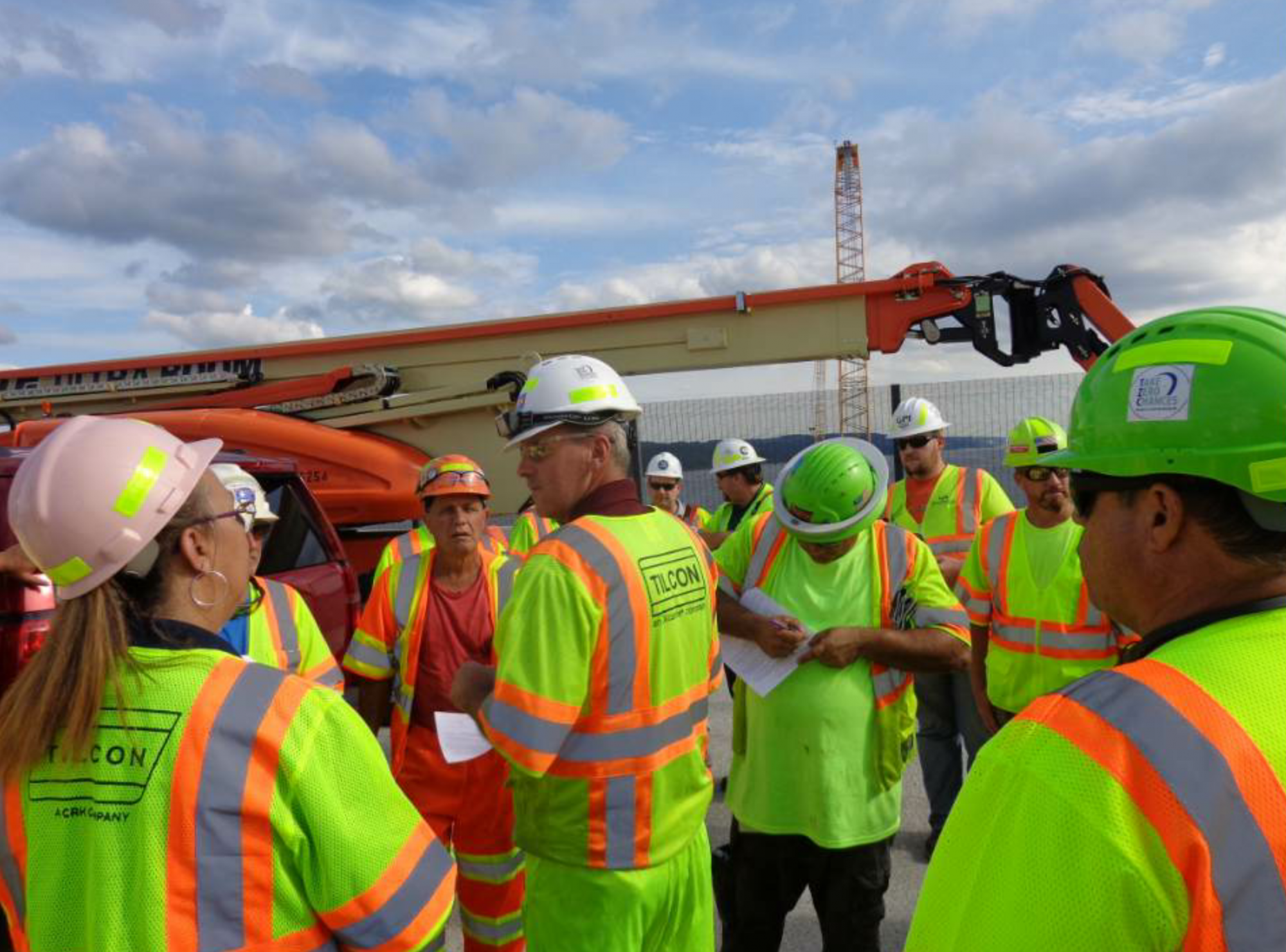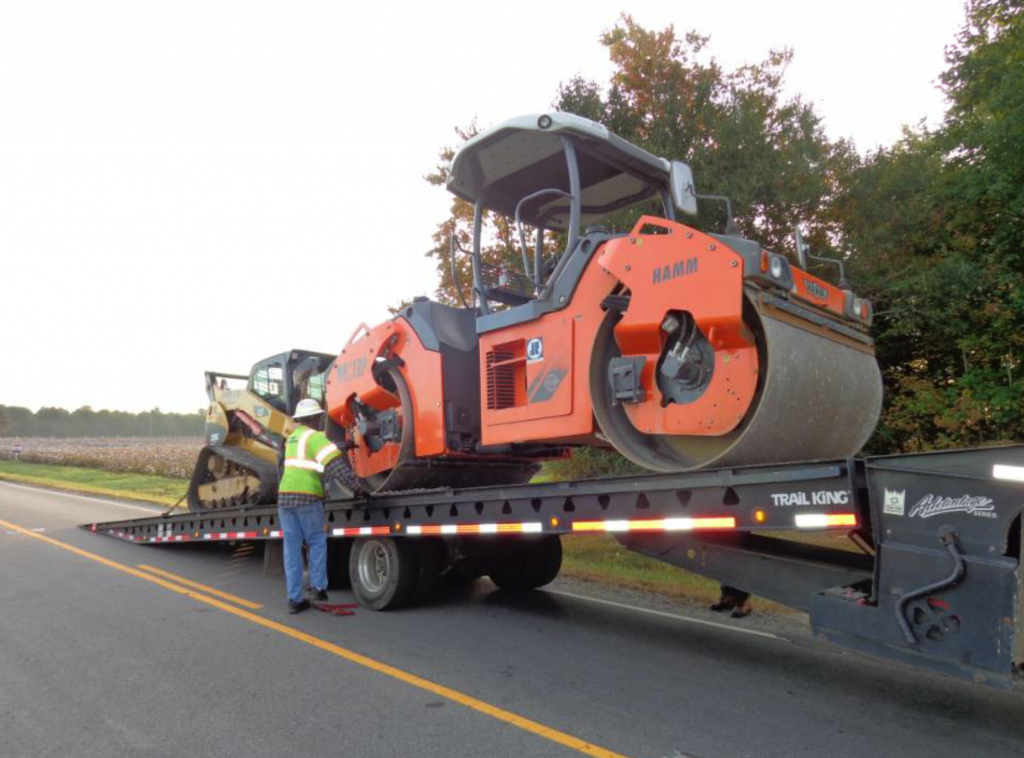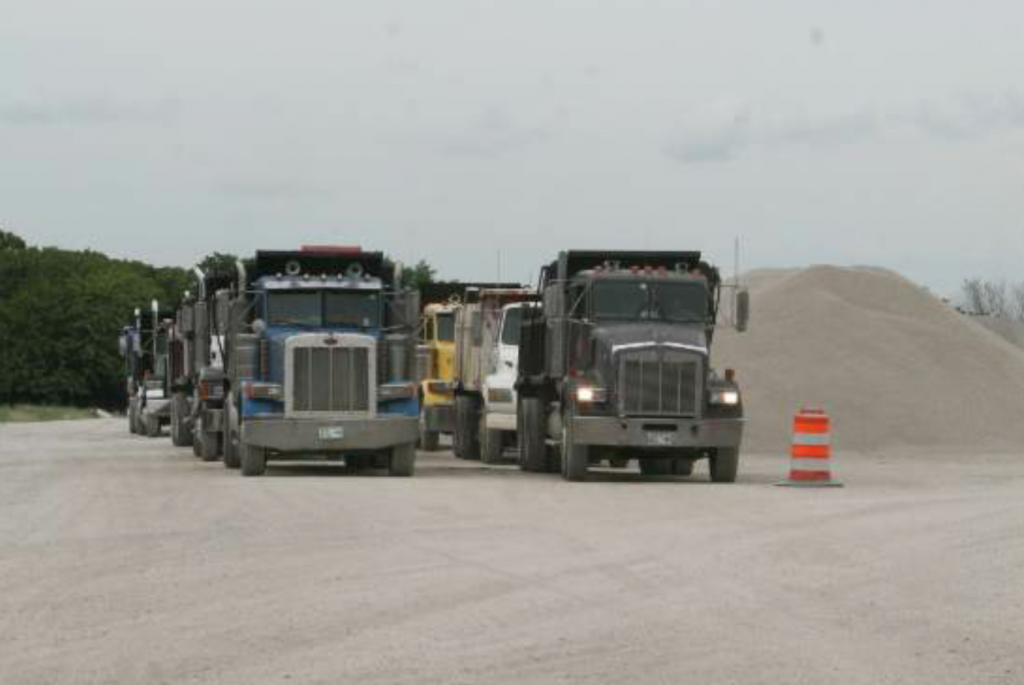Don’t Assume Everything Will Go Right on the Paving Train
BY John Ball

Paving contractors can’t afford to assume everything will go right on every job. Here are a few common tasks that slip through the cracks.
When you arrive at the paving (or pavement maintenance) project first thing on a Monday morning, you pull up to see a vacant lot or a long stretch of road in need of your work. What’s missing? Are all the pieces of equipment you need on site? Has anyone walked the project yet, measuring and marking the lines so each equipment operator knows where to work? Did you assume that would be taken care of before you arrived, or is that part of your job responsibilities? Better yet, did the worker responsible for painting lines show up for the job at all?
When you’ve been paving for two or three hours on a state project, moving down the highway at a consistent speed, getting great densities behind the screed, you’re not expecting something to go wrong. You assume the plant is still running. Which member of the team is responsible for calling to make sure? You can’t assume the plant folks will call you.
Many times, we assume the project manager is taking care of all parts of the project, but he’s not. The superintendent and foremen have their duties as well. Between the project management and the superintendent, you need to decide up front who has the orders of business. Usually the project manager takes care of the subs on the project, but you want to make sure.
https://theasphaltpro.com/cross-train-your-crew/
We assume each person is coming to work, but no one told us the paver operator called in sick or two of the laborers weren’t on the schedule for today.
We assume each person knows what to do when he or she arrives, but that’s not always the case. For example, if no one taught the screed operator that he is responsible for cleaning the screed and hanging it up Friday night, you could show up Monday morning to find the screed gobbed up with material and rust from a weekend of dew and dampness. Or, if no one told the tack truck driver to get to the job 20 minutes earlier than the first haul truck, that fellow will be late and the material may be cold.
With pricy, perishable material and tight competition out there, we can’t afford to assume all workers have been taught what to do. We have a lot of new workers coming on. We can’t assume any of the project details are being performed by other members of the crew. We have to take responsibility to teach and train, and we have to take responsibility for our own duties as well.
Here are a few of the common tasks that slip through the cracks. Have you assigned these tasks to specific members of your crew?
Consider who has the keys for the paver and its control panel lockout boxes. Who has the key for the padlocks?
When the lowboy driver drops equipment off for the project, someone has—hopefully—shared with him how to line up the equipment for the job. See AsphaltPro‘s article for a great guide to staging equipment. Once he’s done his job, the lowboy driver will leave, assuming the paver operator has the keys for the paver and the roller operators have keys for their machines, and so on. In other words, he leaves with his sets of keys.

When the lowboy driver drops equipment off for the project, make sure he knows how to line up the equipment for the job. Once he’s done his job, he will leave with his sets of keys for the equipment. You want to make sure each equipment operator knows that he is responsible for bringing the keys with him to the job. Or is that the foreman’s job at your company? Don’t assume everyone knows; make sure before the project is delayed by something as simple as “who has the keys?” Photo courtesy John Ball of Top Quality Paving.
Did anyone tell the paver, roller and other equipment operators that they are responsible for bringing the keys with them to the job? Or is that the foreman’s job at your company? Don’t assume everyone knows; make sure before the project is delayed by something as simple as “who has the keys?”
Also figure out ahead of time who will be responsible for bringing the cables for automation. Who will have the cables, control heads, wires and the box?
Which member of the crew knows where the straightedge is? While some crews have built a ledge for it on the back of the screed, not all crews have this in place. Maybe the straightedge is in the foreman’s truck, or maybe it’s back at the mechanic’s shed because no one was assigned the job of putting it in the truck. Someone needs to take responsibility for putting it back in the truck as well so it’s not left at the side of the road. Don’t assume someone took care of that; make sure.
Which member of the crew brought the starter plates? They should be on the paver, but don’t assume someone else put them there. Make sure that task is assigned and taken care of.
If the mechanic is in charge of installing the hopper insert, who’s in charge of double-checking that it’s chained in? I’ve seen terrible messes when the hopper insert falls out. Don’t assume everything is in working order; instead, take the time to walk around the paver before the shift starts and make sure the straightedge, starter plates and depth rods are on board, and the hopper insert is chained in, etc.
Someone on your crew is responsible for fueling the paver before the shift begins as well. Is that the paver operator, or is that one of the laborers? Some companies have a fuel truck that arrives and takes care of filling machines prior to work start.
Then who’s responsible for getting the gasoline and propane tanks for the auxiliary equipment such as plate compactors, generators, light sets, blowers and other such power tools? If that person hasn’t been trained to bring the filled, secured and labeled gas cans to the site and to fill the power tools of the trade before the shift starts, you’ll find your crew waiting on fuel more than once throughout the day. Don’t assume the plate compactor has gas or water. Make sure. Make sure one of the laborers knows it’s his job to keep these pieces of equipment ready for service at a moment’s notice.
Consider who puts in the order for the mix. Of course you must be sure someone called to order the asphalt for the day, but you also need to be sure that person requested the correct mix design and tonnage. That goes hand in hand with delivery.

The project manager might assume the trucking foreman will order the correct number of trucks for the job. But have the right people discussed tonnage and production? Does the trucking foreman truly know how many trucks will be needed today versus tomorrow? Does the trucking foreman or paving superintendent have the plant operator’s cell phone number to call and check on trucks throughout the shift? Don’t assume the truck guy has this under control; work and communicate together before there’s a gap in delivery that messes with your quality. Photo courtesy Larry Trojak of Trojak Communications.
What kind of trucks do you have lined up for the project? How many of each type do you have coming to the job? You will want to make sure someone is responsible for managing the trucks, for communicating the directions for the route to the drivers, for making sure the drivers know the internal traffic control plan (ITCP), for making sure the drivers know where they’re allowed to clean out, and all the other important aspects of the job. Download the free hauling and mix delivery white paper for some good tips, but make sure the responsibility is assigned to a person who knows what to do.
Another driver who comes to the job is the tack truck driver. Make sure he has enough material in the tank for the job. If he doesn’t, it is his responsibility to get back to the plant to get more. That will take time, so make the call in a timely fashion. The tack truck driver needs to take responsibility for having the right amount of material, for arriving on time, for heating to the right temperature and metering/spraying material to spec, and so on. Has he been trained for all of these points? Help him get proficient at the job he has to do, but don’t assume he’s been told what today’s project will entail. Someone must take the lead and make sure he knows when to arrive, what material to bring, how much to bring, the rate to shoot it, where he starts, etc.
You can’t assume all these tasks have been completed by someone else. You must take responsibility for each of your assigned duties before, during and after the shift. The morning meeting—the toolbox talk—is when the super makes sure each crewmember knows his or her responsibilities that he’s assigned for the day.

Don’t assume the plate compactor has fuel and water in its tanks. Make sure one of the laborers knows that it’s his job to keep these pieces of equipment ready for service or you’ll find yourself stopped and waiting for someone to find a full gas can or water jug right when you need them most. Photo courtesy John Ball of Top Quality Paving.
Just as you can’t assume someone else has the fuel to run the generator, the plate compactor, etc., we can’t assume every member of the paving crew comes to the job understanding everything that is required of him or her. We must take the time to show new workers—and even seasoned workers who are new to the crew—what is expected of them. They will then be accountable.
Don’t be upset with a worker who doesn’t know it’s his job to assist in filling the water tank on the roller; instead, make sure routine equipment maintenance and care is part of that person’s new-hire training. Teach the basics. Teach what is expected of the people on your crew. Teach them to work together as a team, caring for equipment and project details so you all come to each shift knowing your responsibilities and ready to pave a top quality mat.
John Ball is the proprietor of Top Quality Paving & Training, Manchester, New Hampshire. He provides personal, on-site, paving consulting services around the United States and into Canada. For more information, contact him at (603) 493-1458 or tqpaving@yahoo.com.
